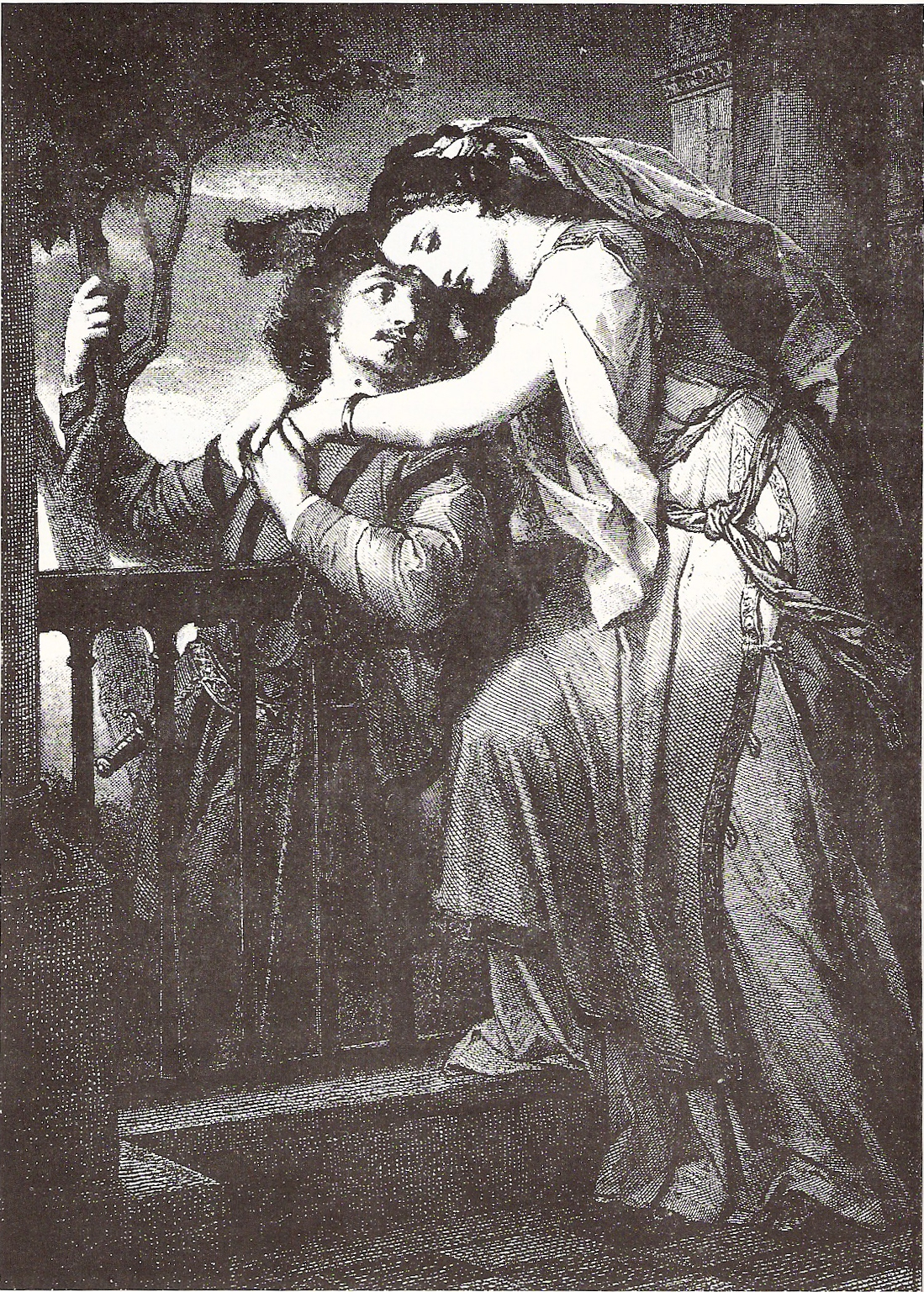Shakespeare and Sexting: Reconsidering Penalties for Teen Sexual Activity
By Rebecca Beitsch, Stateline, Pew Trusts*
Their story mostly has a happy ending. They reunited when Russell got out of prison. They're married now, with four kids, and living in Glasgow, Montana. And last month, Montana Gov. Steve Bullock, a Democrat, granted Russell clemency. But there have been struggles, too. Russell’s record has made it hard for him to find work, and being a registered sex offender has limited where the family can live.
Wikimedia Commons image of Romeo and Juliet
Hoping to spare other young couples severe consequences like those, the Fosters pushed for a bill the Montana Legislature passed last month that would reduce the penalties for teens caught engaging in consensual sexual activity. The measure also would expand the age range covered by the state’s existing Romeo and Juliet law. Named for Shakespeare’s young lovers, the laws vary from state to state but typically provide legal protections or reduced penalties for teens close in age who engage in sexual activity.
Other states also are considering reducing the penalties for teens convicted of crimes associated with sexual activity. Last year, Kansas enacted a law that gives prosecutors the option of charging minors with a misdemeanor, rather than a felony, for exchanging lewd photos in text messages. Connecticut is considering a similar bill this year, and the New York Legislature is considering a bill that would give teens a pass for consensual sexting. And Nevada is considering a bill that would give judges discretion over whether children convicted of sex crimes need to register as a sex offender.
Tough penalties for teens convicted of illegal sexual behavior were often written into statute over the past 20 years as part of broader efforts by state legislatures to protect children from predators, following federal laws that called for better tracking of sexual offenders.
But more recently, steep penalties for sexual contact between teens have made some prosecutors reluctant to bring charges, said Tom Raynes, executive director of the Colorado District Attorneys’ Council.
In Cañon City, Colorado, prosecutors in 2015 declined to charge about a hundred middle and high school students who were using their cellphones to exchange nude images of one another. The state currently only has one charge at its disposal to address such cases: sexual exploitation of a minor, a felony that requires sex offender registration.
*The Pew Charitable Trusts is driven by the power of knowledge to solve today's most challenging problems. Pew applies a rigorous, analytical approach to improve public policy, inform the public and invigorate civic life.
More Articles
- Monetary Policy Report Prepared at the Federal Reserve Bank of Richmond, Expectations for Future Growth Were Mostly Unchanged
- CDC’s First Nationally Representative Survey of High School Students During the Pandemic Can Inform Effective Programs
- Senate Commerce Subcommittee Set ... Protecting Kids Online: Testimony From a Facebook Whistleblower
- Journalist's Resource: Religious Exemptions and Required Vaccines; Examining the Research
- Jo Freeman Reviews Mazie's Hirono's Heart of Fire: An Immigrant Daughter's Story
- The GAO Finds: Elder Financial Exploitation — The Fraudulent or IIlegal Use of An Older Adult's Funds or Property — Has Far-reaching Effects on Victims and Society
- Pew Trusts, Stateline: Poverty Grows Despite Economic Recovery; Left Behind
- Stateline: Search and Rescue Teams, Already Stretched Thin, See Surge in Calls
- Pew Trust's Stateline: Staffing Nursing Homes Was Hard Before the Pandemic. Now It’s Even Tougher.
- Weekly National Summary of Week 50: Outpatient Illness Surveillance, Geographic Spread, Mortality Surveillance






